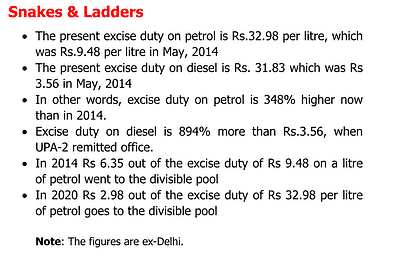
While the Prime Minister tweeted his outrage at the insurrection at Capitol Hill, he has been silent on the Badaun rape of a 50-year-old woman in a temple.
"Selective outrage" is a ploy adopted by Modiji from day one, and the godi media dance along! nationalheraldindia.com/opinion/why-is…
"Selective outrage" is a ploy adopted by Modiji from day one, and the godi media dance along! nationalheraldindia.com/opinion/why-is…
How many farmers have died on the outskirts of Delhi, in the freezing cold, as they protest peacefully against the Modi government’s farm acts? At last count, 60.
The dear PM has felt no remorse or pain or shame. He carries on with his publicity routines while pretending to work
The dear PM has felt no remorse or pain or shame. He carries on with his publicity routines while pretending to work
Not one tweet from our prolific tweeting PM.
The 56-inch strongman who does not have the courage to face India’s farmers.
He is helped immeasurably by a pusillanimous media, the bulk of which has been unable to cover the farmers’ protests with any semblance of professionalism.
The 56-inch strongman who does not have the courage to face India’s farmers.
He is helped immeasurably by a pusillanimous media, the bulk of which has been unable to cover the farmers’ protests with any semblance of professionalism.
Every day, we watch democracy cracking in India.
We have no cause for glee or shock at what’s happened in America.
Once again, their institutions stood up, even when they looked at their lowest.
@ranjona shows the mirror, but we refuse to see our ugly faces!
We have no cause for glee or shock at what’s happened in America.
Once again, their institutions stood up, even when they looked at their lowest.
@ranjona shows the mirror, but we refuse to see our ugly faces!
• • •
Missing some Tweet in this thread? You can try to
force a refresh



